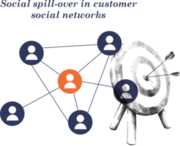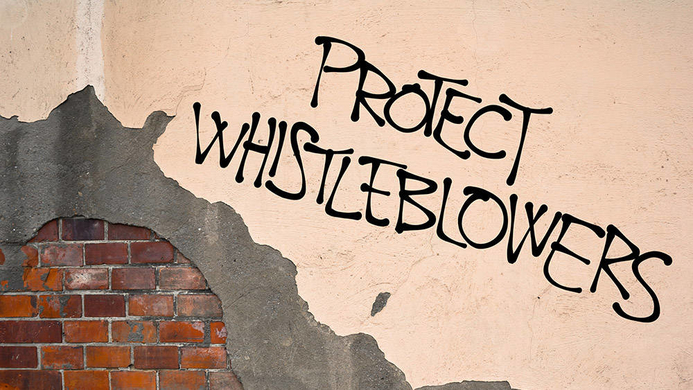Research in a broad range of fields has repeatedly demonstrated that individual creativity — the ability to generate new ideas — varies over time. However, until now, there has been no compelling explanation as to why this is the case. In a longitudinal study of individuals working in the animated film industry, Pier Vittorio Mannucci shows that at different stages of their careers, different types of knowledge enhance people's creativity. They also highlight the role of cognitive flexibility or rigidity in this dynamic.
Specialization is a core component of creativity
Mannucci explains that people's ability to generate new and innovative ideas varies across their careers because of two core types of knowledge that may be alternately developed and sustained or neglected as people advance professionally. The first type is specialized knowledge, and the second is diverse knowledge, which broadens a person's knowledge base. Although it may seem counterintuitive, the first type is more essential to generating new ideas than the second. The study shows that to use a new idea productively, a person must possess specialized knowledge, which acts as a sort of discriminating lens through which to consider ideas. Mannucci comments, "Without specialized knowledge, new ideas remain scattered. This is what happens in the case of writer's block. The problem is not a lack of ideas but rather too many ideas that make it virtually impossible to produce one good idea." Specialized knowledge helps people situate an idea and figure out how to carry it through to a productive end.
Beginners may have a lot of enthusiasm, but they do not necessarily possess the deeper knowledge of their field that is necessary to distinguish between what's new and innovative, and what is simply new to them. Mannucci relates that Pixar Studios deals with this issue by requiring new hires to take courses directly related to their position. In this way, people in this creativity-dependent business are deliberately put in a position to build the deeper knowledge they need to contribute effectively. "The more specialized knowledge a person develops, the more he or she also builds his or her capacity for complexity. This too has a positive impact on creativity." There is nonetheless also a downside to deep knowledge: over time, it can foster cognitive rigidity. "The more you know about something, the more it becomes the only thing you see," says Mannucci. In short, specialization is a requisite for creativity, but it must be prevented from fostering narrow-mindedness.
Specialization is a requisite for creativity, but it must be prevented from fostering narrow-mindedness.
Diversification is a means to counterbalance specialization
To prevent knowledge from evolving into an inflexible, airless mass, it is important for people who have developed specialized know-how to also take interest elsewhere. Focusing on areas outside of your specific field or activity helps to keep your cognitive processes flexible. "It is actually relatively easy to keep your mind flexible," Mannucci comments. "Even indirect stimuli like attending conferences or reading articles can effectively counterbalance cognitive rigidity." At Pixar, once an animator has sufficiently specialized, he or she is encouraged to take a step beyond that specialty, by, for example, taking courses on film direction or production.
After that, the door is thrown wide open, and the company supports every category of interest, offering courses on subjects as varied as violin and belly-dancing. As the Pixar example suggests, timing is essential to fostering and sustaining creativity. "It takes four to five years to build specialized knowledge," says Mannucci. “During these years, we found it to have a positive impact on creativity." According to his findings, specialized knowledge is a required baseline and remains so after the five-year "formative" period, but it stops having a positive effect. It does not actually have any significant impact on creativity again until a person has spent 30 years in a career.
From this point on, if nothing is done to counterbalance the rigidity that tends to build up naturally over the years, excessively specialized knowledge is likely to have a negative effect and hinder creativity. The effects of broad knowledge follow a different time frame. The positive, offsetting impact of building broader knowledge is not significant until a person has spent 10 years in a career. This is the point when over-specialization emerges as a genuine risk, and new perspectives are essential to keeping people's minds flexible and open. "Interestingly, 10 years is also what HR research shows to be the time when people are likely to leave their company or position. This suggests that continued specialization and lack of diversity are not only negative for creativity but also for motivation."
Sustaining creativity over time
"Researchers used to think creativity followed a curvilinear path over a career, peaking mid-career, but our study shows that creativity is possible at any point," says Mannucci. The ability to generate new ideas is a matter of balance between specialized and diverse knowledge, and varying degrees of cognitive flexibility. The optimal amount of each changes over time and the balance must be readjusted accordingly. "Filmmaker Quentin Tarentino and Apple's Steve Jobs are often considered to have been very creative straight away, but in fact, before holding key creative roles, they both developed their knowledge base extensively through university courses, assistantships, short films, and so on."
Moreover, Mannucci comments that by neglecting to take the evolution of people's knowledge characteristics into account, many companies are losing valuable human capital. New input can stimulate older people and enable them to keep contributing to the company. As more and more businesses rely on creativity to be competitive, they need to respond to the challenge of figuring out how long to spend on building specialized knowledge and when to diversify. According to Mannucci, the task and client-rotation schemes often used in consulting firms are an effective means to develop a productive balance of knowledge.











